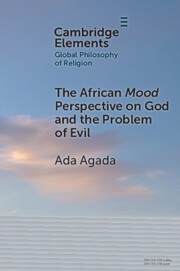Element contents
The African Mood Perspective on God and the Problem of Evil
Published online by Cambridge University Press: 03 December 2024
Summary
Keywords
- Type
- Element
- Information
- Online ISBN: 9781009452694Publisher: Cambridge University PressPrint publication: 02 January 2025
References
- 1
- Cited by

